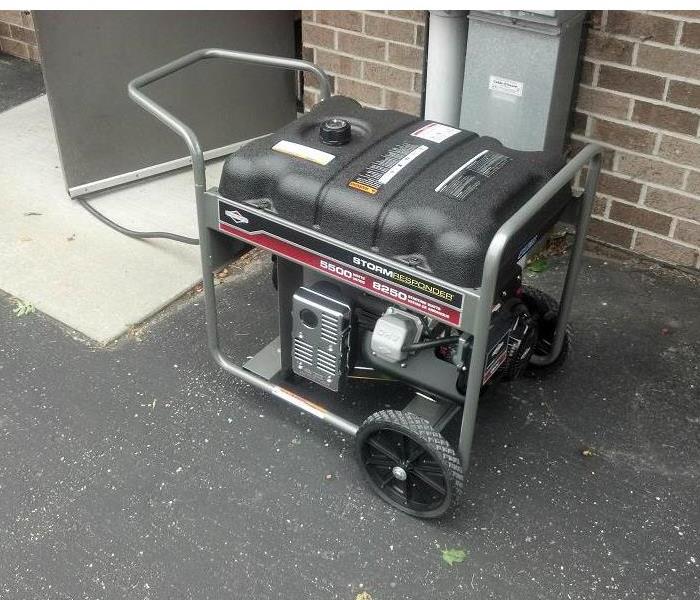What You Need to Know: Generator Safety
4/18/2018 (Permalink)
As we’ve been writing recently about severe weather season and preparing for any possible flooding or storms, we thought it might be a good idea to tackle generators.
Generators are always great to have as a backup if your home or business loses power during a storm, but they can pose serious dangers if you’re not careful.
According to the American Red Cross the biggest dangers generators can pose are fires, electrocution and carbon monoxide (CO) poisoning.
The Red Cross has a long list of safety measures to take if you need to use a generator personally.
- Turn the generator off and let it cool before refueling. Hot fuel can spark a fire.
- Keep the generator dry. Do not use in wet conditions.
- NEVER plug a generator into a wall outlet. That puts you and your neighbors at risk of electrocution.
- Read instructions thoroughly to avoid overloading the generator. Also, stagger use to avoid overloads. Overloads can lead to over-heating, which can lead to fires.
- NEVER use a generator inside your home or inside ANY partially enclosed space.
- Don’t put your generator close to windows or vents to avoid letting CO inside your home.
- Put CO detectors up in your home.
- If the CO alarm goes off, leave the building, go outside into fresh air and call 911 for help. Stay outside until help arrives.
Hopefully you won’t need the help of a generator this spring or summer, but if you do, please remember this advice.
And, also remember that if you do experience any fire, storm or water damage issues, West Brown County. Call anytime at 920-434-8224.



 24/7 Emergency Service
24/7 Emergency Service
